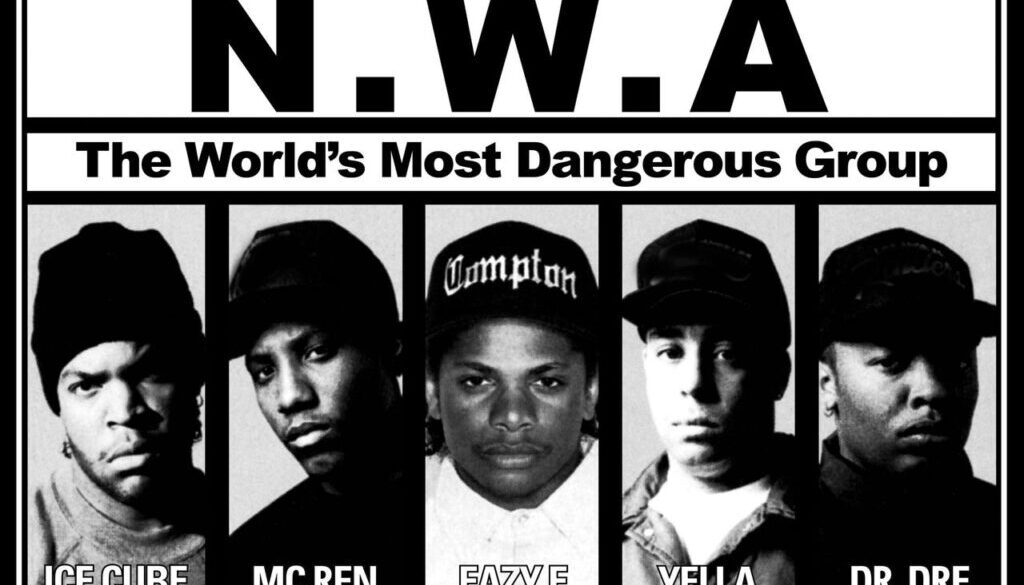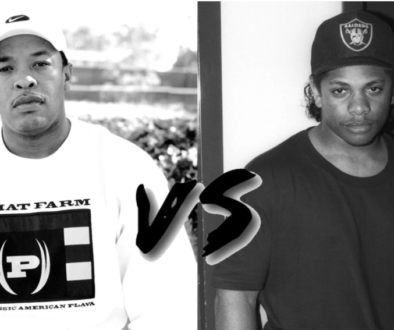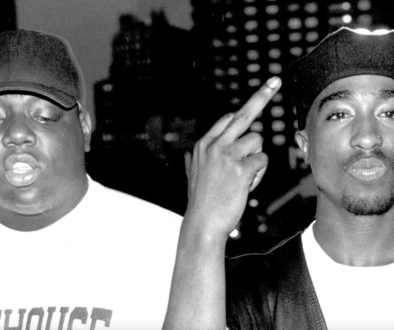From the Bronx to the West Coast – The Evolution of Hip Hop and the Birth of Gangsta Rap
The 1970s in the Bronx was a time of economic hardship and social unrest. Amidst this backdrop, the seeds of hip hop were planted. DJs like Kool Herc, Grandmaster Flash, and Afrika Bambaataa began experimenting with new techniques, creating a fresh sound that combined rhythmic beats with spoken word. This innovative approach to music gave birth to hip hop, a cultural movement that included rapping, DJing, breakdancing, and graffiti art.
Afrika Bambaataa, in particular, played a significant role in shaping hip hop culture. His Universal Zulu Nation promoted peace, unity, and social awareness, using hip hop as a tool to uplift and empower the youth of the Bronx.
As hip hop gained momentum in the Bronx, it began to spread to other parts of New York City and the East Coast. By the early 1980s, artists like Run-D.M.C., LL Cool J, and the Beastie Boys were bringing hip hop to mainstream audiences. Their success helped solidify hip hop’s presence on the East Coast and laid the groundwork for its national and international expansion.
Run-D.M.C.’s collaboration with Aerosmith on the track “Walk This Way” was a landmark moment, bridging the gap between hip hop and rock music. This crossover appeal demonstrated hip hop’s versatility and its potential to reach diverse audiences.
While hip hop flourished on the East Coast, a new sound was brewing on the West Coast. In the late 1980s, Los Angeles became the epicenter of a burgeoning hip hop scene that would soon take the world by storm.
At the forefront of the West Coast movement was N.W.A. (Niggaz Wit Attitudes), a group that revolutionized hip hop with their raw and unapologetic approach. Formed in 1986, N.W.A. included members Dr. Dre, Ice Cube, Eazy-E, DJ Yella, and MC Ren.
In 1988, N.W.A. released their debut studio album, “Straight Outta Compton.” This album was a seismic shift in hip hop, introducing the world to gangsta rap.
The title track, “Straight Outta Compton,” set the tone with its aggressive beats and stark portrayal of street life. However, it was the track “Fuck tha Police” that truly captured the group’s ethos, addressing police brutality and systemic racism with unflinching honesty.
“Straight Outta Compton” was both a commercial success and a lightning rod for controversy. Its explicit lyrics and themes of violence and rebellion drew criticism from authorities and conservative groups. The FBI even sent a warning letter to N.W.A.’s record label, condemning the group’s anti-police rhetoric.
Despite the backlash, “Straight Outta Compton” went platinum, proving that there was a substantial audience for this new form of hip hop. N.W.A.’s success demonstrated the power of music to reflect societal issues and provoke important conversations.
N.W.A.’s influence on hip hop is immeasurable. They not only pioneered gangsta rap but also paved the way for future artists to explore complex and controversial themes. Members of N.W.A. went on to have successful solo careers, with Dr. Dre becoming one of the most influential producers in hip hop history and Ice Cube establishing himself as a prominent rapper and actor.
The group’s legacy extends beyond music. N.W.A.’s story was immortalized in the 2015 biographical film “Straight Outta Compton,” which brought their impact to a new generation of fans. The film highlighted the struggles and triumphs of N.W.A., showcasing their role in shaping the cultural and musical landscape.



